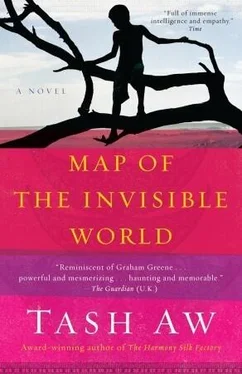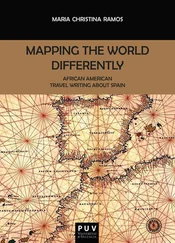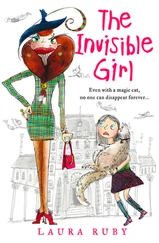“And once you’re there? What will you do then? Do you think you’ll blend in, with skin this color?” Din reached across and pinched Adam’s arm lightly. “You won’t. Believe me, I’ve been there. You’ll be treated worse than a dog. Your so-called father will start to become ashamed of you, and people will say things about him, about you. You’ll have no work, and you’ll become a burden to him. You’ll be completely dispirited and you will realize that you only have one place left to go: Indonesia.”
Adam shook his head. He knew this was not true. He tried to remember the Dutch phrases he knew, the expressions he had gleaned from visitors or that Karl had breathed secretly, all those words in that forbidden, magical language. Mijn naam is Adam de Willigen. De zee is leeg. De schapen zijn verbrand. Zo was het nu eenmaal!
“Let me share my experience with you. I lived in Holland for three whole years. I went there full of hope. I was young and bright and I was selected for a Dutch education — can you imagine how I felt? My father was so proud of me. He was completely illiterate. So was my mother — she died when I was a baby and her only wish was that I escape our village. My parents wanted a better life for me and so they sent me to school in Palembang and then to university in Jakarta. They were so happy when I won my scholarship to Leiden. They told everyone I was going to be a professor, even though they didn’t know what that meant — they just liked the sound of the word. It sounded important to them. Professor, president — these words have power over poor, uneducated people. I arrived in Holland thinking I was special, that I could change things. It was raining when I arrived. I took this as a good sign — an omen of great things to come. Not even a week later, I realized that Dutch rain is not like Indonesian rain. One brings a chill to everything it touches, the other brings life. It did not stop raining in all the time I was there. Someday, if we become friends, I will tell you about the thousand injustices I suffered over there, but for now, all I will say is that they were the longest, darkest, coldest three years of my life.”
Adam paused. He wanted to ask a hundred questions about Holland, to ask all the questions that Karl had refused point-blank to answer — whether there were windmills and placid canals of cold, clear water and plump black-and-white cows and quiet cobbled streets — but he knew that he would not get the answers from Din.
“Was it really terrible?” he asked.
“I’ll tell you the whole story sometime. Let’s just say that I realized one thing: that the only place I could call home was this”—he gestured around him. “Indonesia might be a shit hole but it’s our shit hole. We will never be happy anywhere else. What’s happened to your so-called father anyway? If he’s so wonderful, why isn’t he here to look after you?”
“He’s missing. They took him away — the army took him.”
Din said nothing for quite some time, but stared straight at Adam, his eyes moving almost imperceptibly. On either side of Din’s mouth, Adam could discern tiny muscles twitching, just briefly, as if Din was going to smile. But he did not smile. He said, calmly but very firmly, “He’s abandoned you. I thought as much.”
“No, he hasn’t. Margaret is getting in touch with him. He’s coming back very soon.” Adam tried to sound casual but he knew he was not convincing. He tried to tell himself that Karl’s return was indeed imminent, but it was too much to hope for.
“Tell me,” Din said, his face adopting a more serious, less confrontational expression, “you’re an orphan, aren’t you? Why are you expending all your energy looking for your foster father when you could look for your real family?”
Adam shrugged. “I don’t know anything about my parents. They’re probably dead. They wouldn’t want me anyway — that’s why they left me in the orphanage in the first place.”
“Rubbish! Of course they loved you. They were just too poor to care for you.” He leaned forward, his elbows resting on his knees. “Tell me everything you know about your family.”
“Honestly, I don’t know anything. I don’t want to know anything about my past. Please stop asking me.”
“No, I won’t stop because it’s important. You need to know about your past. It’s who you are.” Din’s voice softened and he smiled. “Look, surely you have some clue about your background? I mean, look at you. You’re clearly Sumatran, for a start — just like me! I can recognize a fellow Sumatran when I see one.”
“Really?” Adam was caught off guard by this revelation; not even Karl had been able to tell him where he was from. He stared at Din’s face and was disconcerted to find more than a passing resemblance: the skin tone, the way the eyes sat evenly on a fine-boned face. He recognized these things, and was disturbed by them.
“Yes, it’s clear you’re Sumatran. There’s been so much movement across the islands over the years, what with this stupid transmigration policy. Good principle, bad result. Javanese should live in Java, not in Nusa Tenggara, Sumatra should remain Sumatran, and so on. So we know your ethnic background. What else? Brothers and sisters?”
Adam hesitated. He did not see why he should say anything to this person, but at the same time there was something about this invasive, almost repugnant man that made Adam think that he would understand everything about Johan. It was crazy, he thought, but he might know things about Johan, just as he had known things about Adam. “I think …”
“Go on,” Din said, his voice calm and soft. “I’m listening.”
“I think I have a brother.”
“That’s great,” Din encouraged. “You’re sure of this?”
Adam could hear his own breathing — perfectly regular and even. He nodded. “Yes. I have a brother.” This time the words did not seem so awkward; they sounded firm, comforting.
“You were separated when you were very young, weren’t you? That’s tragic.”
“Yes.” Adam nodded. He began to feel slightly light-headed and dizzy and wondered why.
“It must be difficult for you.” Din continued speaking softly, pausing carefully as though appreciating the enormity of what Adam had just shared with him. “All these years without your brother, alone.”
Alone. Yes, thought Adam, alone.
“I don’t know if it helps,” Din went on, “but you are not on your own in this respect. Many many young children — tens of thousands, maybe hundreds of thousands, possibly millions — have been orphaned in the last few decades, just like you. Poverty and disease and this stupid transmigration policy have created generations of orphans. If a poor family has to move to another part of the country they often leave their children behind because they don’t know what awaits them in their new home. They think they’ll come back for their kids or send for them later, but they never do.”
As Din spoke Adam realized why he felt giddy — it was relief, of course, relief at being able to speak about Johan without feeling baffled or guilty or lost. It bothered him that Din, whom he had met only five minutes ago, should have so many insights into his life; Adam had not yet even decided if he liked Din.
“So what do you know about your brother?” Din was patient and coaxing, no longer insistent as he had been earlier.
Adam shook his head, half-expecting to be reproached.
“Nothing?”
“I get so angry that I can’t remember anything. I hate it.”
“Hey, hey, don’t beat yourself up. It’s not your fault.”
A car drew up outside, its engine rattling to a halt.
“We’ll talk about this some more,” said Din, “but only if you want to.”
Читать дальше
Конец ознакомительного отрывка
Купить книгу












